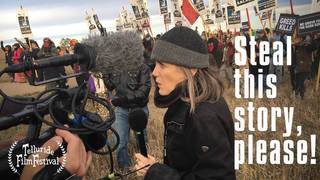Thousands of people gathered in Selma, Alabama, on Sunday to mark the upcoming 48th anniversary of Bloody Sunday. On Sunday, March 7, 1965, Alabama state troopers and local police attacked a peaceful march by 600 civil rights demonstrators from Selma to Montgomery. The marchers were just a few blocks into their planned route when they were tear-gassed and beaten by police on the Edmund Pettus Bridge over the Alabama River. Sunday’s participants crossed the bridge in the march’s annual reenactment. They were led by a delegation that included Vice President Joe Biden and Democratic Rep. John Lewis, who was brutally beaten when he helped lead the original march in 1965. On the eve of Sunday’s march, the chief of the Montgomery Police, Kevin Murphy, apologized to Lewis on behalf of the city for the first time. Shortly after the apology, Murphy and Lewis appeared for a joint interview.
Kevin Murphy: “What I did today should have been done a long time ago. It needed to be done. It needed to be spoken, because we have to live with the truth, and it is the truth.”
Rep. John Lewis: “It meant a great deal. I feel very good for the chief of the Montgomery Police Department to offer an apology. I teared up. I tried to keep from crying. And I accepted the apology.”
The Selma crackdown ultimately led to passage of the 1965 Voting Rights Act. Its anniversary comes just days after conservative members of the Supreme Court signaled their intent to strike one of the law’s key provisions, ensuring federal oversight of election laws in states with a history of racial discrimination.










